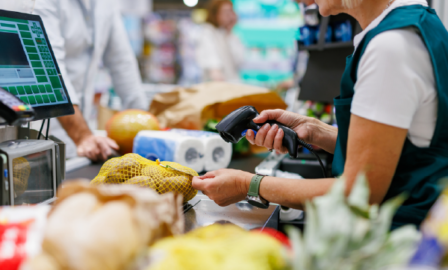Top Grocery Insights from 2022
As 2022 comes to a close, I’ve taken time to reflect on the 200+ content pieces that our industry experts here at Clarkston have generated over the past year. Below, I’ve highlighted just a few of our top insights for grocery in 2022. For all of our 2022 grocery insights, you can read more here.
Top : 2022 Grocery Insights
1. What to Consider Before an SAP Implementation for Grocery
The grocery industry has experienced its fair share of disruption over the past few years, encouraging almost every business in this sector to rethink and reassess the processes and systems in place. For many, that included evaluating solutions that would better enable them to respond and adapt to supply chain challenges, evolving shopper habits, rising inflation, and more – such as SAP. However, before undergoing an SAP implementation, there are a number of factors to consider. In this piece, Raj Vaughn-Patel, senior consultant, explains some of those factors to consider before an SAP implementation and recommendations for finding the solution that can best meet your business’s specific needs.
Read SAP Implementation Recommendations
2. The Power of Loss Leaders in Grocery
During times of high inflation and supply chain disruptions, consumers often feel the weight of higher prices and empty shelves. There are some items, though, that might specifically and strategically be sold at a loss or for less than market value in order to retain or attract new customers – these are known as loss leaders. Products previously sold as loss leaders to generate a positive return, however, may now hurt profits in the current landscape. In this piece, Blake Weber, manager, outlines key benefits, considerations, and risks for using loss leaders in grocery.
3. The Role of Grocery Retailers in the National Strategy on Hunger, Nutrition, and Health
Reducing and combatting food insecurity, and diet-caused diseases are the focus of the Biden-Harris Administration’s National Strategy on Hunger, Nutrition, and Health. The five-pillar plan calls for the government, communities, and retailers to work together to improve affordability, nutrition, and education surrounding food. While grocery retailers can play an impactful role in the success of this initiative, there are challenges at play that will require businesses to implement innovative technologies and solutions. In this piece, Addie Schmidt, consultant, outlines the five-pillar plan and its impact on the grocery industry.
Read About The Nationa Strategy on Hunger, Nutrition, and Health
4. How Retailers are Responding to Changes in Grocery Shopper Habits
The lasting effects of the COVID-19 pandemic, rising inflation, and supply chain disruptions continue to plague shoppers’ wallets. As such, grocery retailers have seen a change in their shopping habits: they’re looking for alternative products, prioritizing “essential-only” items, and ordering in bulk to cut costs. For retailers, this means finding innovative solutions to adequately adapt and respond in order to meet shopper needs. In this piece, Raj Vaughn-Patel, senior consultant, and Blake Weber, manager, outline innovative ways retailers can respond to changing shopper habits and implications for the industry moving forward.
Explore Changing Shopper Habits
5. Data Governance & Vendor Portal Implementation for a Grocery Retailer
As organizations grow, it’s essential to have solutions and processes in place to scale with that growth, particularly when it comes to managing and storing data across disparate systems. Without good data governance standards or solid organizational structures in place, businesses will continue to struggle with siloed — and potentially inaccurate – data across the organization. In this case study, Blake Weber, manager, walks us through implementing SAP S/4HANA and standardized data governance processes for a large grocery retailer that was looking to enable strategic capabilities for long-term growth.
Read About Data Governance Processes
Subscribe to Clarkston's Insights



